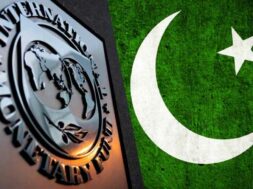
Pakistan May be Forced to Accept “Unimaginable” Conditions of IMF for Bail-out Package
Manas Dasgupta
NEW DELHI, Feb 3: The crisis-ridden Pakistan may be forced to swallow the bitter pill to avoid being a defaulter like Sri Lanka was last year and accept International Monetary Fund’s “unimaginable” conditions for the sanction of the bail-out package after it rejected Islamabad’s revised Circular Debt Management Plan (CDMP).
Calling the CDMP “unrealistic” based on “certain wrong assumptions,” the IMF team had called on the Pakistan government to increase the electricity tariff in the range of Pakistani Rupees (PKR) 11-12.50 per unit to restrict the additional subsidy at PKR 335 billion for the current fiscal year and asked the Pakistan government to make changes in its policy prescription to restrict the losses of the power sector.
The IMF review mission led by Nathen Porter arrived in Islamabad on Monday for last ditch talks to revive vital financial aid which has stalled for months and both sides will continue to hold talks to complete the pending ninth review under the USD 7 billion Extended Fund Facility (EFF).
Reacting to IMF’s conditions for the bail-out package, the Pakistan’s Prime Minister Shehbaz Sharif said on Friday that the government would have to agree to IMF bailout conditions that were “beyond imagination.” The government has held out against tax rises and subsidy slashing demanded by the IMF, fearful of backlash ahead of elections due in October.
“I will not go into the details but will only say that our economic challenge is unimaginable. The conditions we will have to agree to with the IMF are beyond imagination. But we will have to agree with the conditions,” Mr Sharif said in televised comments.
Pakistan’s economy is in dire straits, stricken by a balance of payments crisis as it attempts to service high levels of external debt, amid political chaos and a deteriorating security situation. The country’s central bank said Thursday its foreign exchange reserves had dropped again to $3.1 billion dollars, which analysts said was enough for less than three weeks of imports.
On Wednesday, year-on-year inflation had risen to a 48-year high leaving Pakistanis struggling to afford basic food items. Ahead of the IMF visit, Islamabad began to bow to pressure with the prospect of national bankruptcy looming and no friendly countries willing to offer less painful bailouts.
The government loosened controls on the rupee to rein in a rampant black market in US dollars, a step that caused the currency to plunge to a record low. Artificially cheap petrol prices have also been hiked. The world’s fifth-biggest population is no longer issuing letters of credit, except for essential food and medicines, causing a backlog of thousands of shipping containers at Karachi port stuffed with stock the country can no longer afford.
The tumbling economy mirrors the country’s political chaos, with former prime minister Imran Khan heaping pressure on the ruling coalition in his bid for early elections while his popularity remains high. Khan, who was ousted last year in a no-confidence motion, negotiated a multi-billion-dollar loan package from the IMF in 2019. But he reneged on promises to cut subsidies and market interventions that had cushioned the cost-of-living crisis, causing the programme to stall.
It is a common pattern in Pakistan, where most people live in rural poverty, with more than two dozen IMF deals brokered and then broken over the decades. The IMF and Pakistan’s Ministry of Defence now will work out a gap on the fiscal front after which various additional taxation measures will be finalised through the upcoming mini-budget, an official spokesman of the government said.
“The IMF has opposed the certain basis of the revised CDMP and asks the government to raise the tariff in the range of ₹ 11 to ₹ 12.50 per unit, so that the requirement of additional subsidy could be reduced to half from its existing levels of ₹ 675 billion for the current fiscal year,” media reports said. Furthermore, the IMF also raised questions on how the Pakistan government calculated its additional subsidy requirement figure of ₹ 675 billion for the current fiscal year. The revised CDMP envisages restricting losses of DISCOs to 16.27 per cent on average during the current fiscal year.













